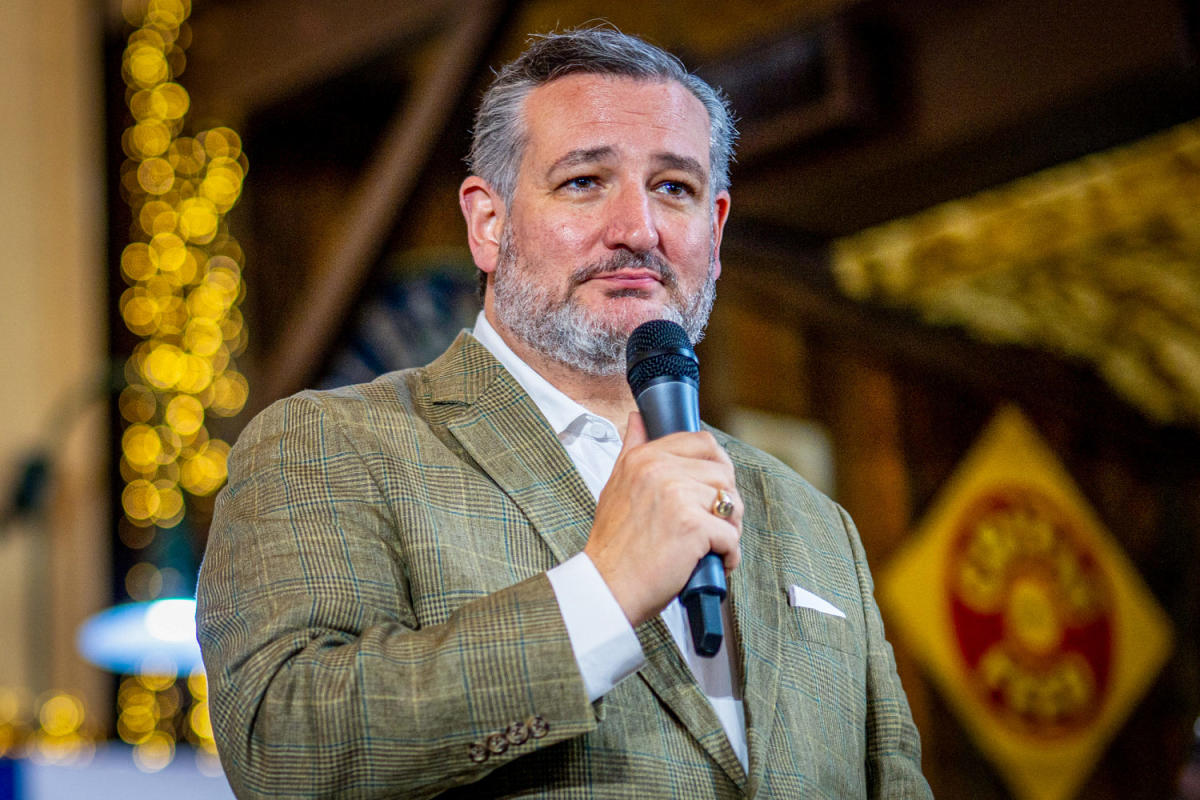
Artificial intelligence is helping spread dubious and even outright false claims on social media, empowering propagandists and misinformation peddlers in new ways. Experts in the field are now discussing ways to address that.
That makes Texas Sen. Ted Cruz mad.
Not about the propaganda. About the people trying to stop it.
Cruz wrote a letter in November to Attorney General Merrick Garland that was published this week, demanding that the Department of Justice probe “how Europeans are seeking to hamstring US AI development.” Now, Europeans aren’t actually trying to hamstring U.S. A.I. development, but in the letter, Cruz refers to a November summit the Biden administration hosted in San Francisco for several countries that — along with the United States — have launched their own “A.I. safety institutes” to combat the dangers of artificial intelligence.
Cruz’s letter alleges that one of the summit’s participants, an Oxford-based nonprofit called the Centre for the Governance of Artificial Intelligence, is essentially acting as an unregistered foreign agent because the group has provided guidance to U.S. lawmakers about how to combat dangerous misuses of artificial intelligence.
The letter fits a pattern of right-wingers fuming over efforts to stem the tide of dangerous online content that’s intended to deceive or manipulate the public.
True to form, Cruz portrayed the U.K. AI safety institute and the Centre for the Governance of Artificial Intelligence’s work as nefarious:
AI has vast potential to improve human welfare and society. But some technocrats and academics believe AI poses severe “risks” to “safety,” which they define as “disinformation,” “bias and underrepresentation,” and “risks to the environment.” Hence, they want governments to globally adopt enforceable “standards” that would empower unelected bureaucrats to actively oversee AI developers and products, and censor disfavored code and AI-generated material.
For the record, all of the things Cruz mentioned are real problems — and putting them in scare quotes doesn’t change that. The senator went on to claim the aforementioned European-led groups are talking about their A.I. concerns “not just to gain control over AI’s development, but to also gain control over information flow and a citizen’s ability to communicate with others free from government intrusion.”
This was a dizzying spin from Cruz, considering the most powerful technocrats in the world — Elon Musk and Mark Zuckerberg, for example — seem willing to allow false or deceptive content to pervade their social platforms, and in Musk’s case, willing to use this manipulative content to his advantage. These are the controlling technocrats worthy of our worries. Nonetheless, Cruz’s letter includes Musk’s Orwellian falsehood that “[w]hen a politician says they want to stop ‘misinformation’ what they really mean is that they want to stop anyone from contradicting their lies.”
As The Associated Press explained, the November summit’s agenda “address[ed] topics such as how to better detect and combat a flood of AI-generated deepfakes fueling fraud, harmful impersonation and sexual abuse.” And Commerce Secretary Gina Raimondo seemed to undercut Cruz’s kvetching at the conference when she said the U.S. AI institute is not a regulatory body — and thus, incapable of enforcing anything — and also “not in the business of stifling innovation.” But I think the source of Cruz’s angst is clear.
Republicans leaned heavily on A.I.-generated propaganda and A.I.-powered social media algorithms to help spread dubious (at times, outright false) claims this election cycle. And anyone seen as a potential threat to similar efforts in the future is deemed an enemy of the party — if not the nation as a whole.
This article was originally published on MSNBC.com


